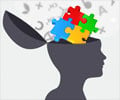Effects of Stress in The Organ Systems
| System | Immediate effects | Chronic stress | Long-term negative effects | How to cope (Tips) |
| Musculo-skeletal | Muscle tension – body’s way of guarding against injury or pain | Constant state of tension around shoulder, neck and head |
| Muscle relaxation techniques |
| Respiratory | Deep breaths – to increase intake of oxygen required for immediate action | Strained breathing, trigger asthma attacks |
| Breathing strategies and relaxation |
| Cardiovascular | Increase in heart rate and stronger contractions of the heart muscle. Dilation of heart due to directing blood to large muscles, elevation of blood pressure. | Constant rise in heart rate, continued elevated levels of stress hormones and elevated blood pressure. |
| Relaxation helps in bringing back the elevated heart rates and blood pressure. Day off from work, going on holidays are some of the strategies engaged by people for relief |
| Endocrine | Adrenal cortex produces cortisol and adrenal medulla produces epinephrine. Reacting to the above hormones, liver produces more glucose to provide energy. | Continued elevated sugar levels |
| Regular exercise and monitoring blood sugar levels |
| Nervous system | Sympathetic nervous system signals the release of adrenalin and cortisol, which in turn make heart beat faster, increase respiration rate, dilation of blood vessels, increase blood glucose levels and changes in digestive system | Results in long-term drain in the body, continuous activation of the nervous system can cause problems in other bodily systems |
| Techniques like yoga and meditation have helped keep the nerves calm |
| Gastro-intestinal | Stomach reacts with “butterflies”, sometimes nausea and pain may occur. Emotional eating and other eating disorders are associated with stress. Increase in consumption of alcohol or tobacco can cause heartburn or acid reflux. | Emotional eating and other eating disorders are associated with stress. Increase in consumption of alcohol or tobacco can cause heartburn or acid reflux. |
|
|
| Immune system | Inhibit trafficking of neutrophils, macrophages, antigen-presenting cells, Natural killer cells and T and B lymphocytes. | Suppress production of pro-inflammatory cytokines and chemokines, required for generation of adaptive immune responses. |
|
|
| Male reproductive system | Production of testosterone and activates sympathetic nervous system, creating arousal | Affects the normal biochemical functioning o f the male reproductive system |
|
|
| Female reproductive system | Rapid hormonal fluctuations | Absent or irregular menstrual cycles, painful periods and fluctuations in length of cycles Anxiety, mood swings and feelings of distress, especially during menopause. |
|
|












